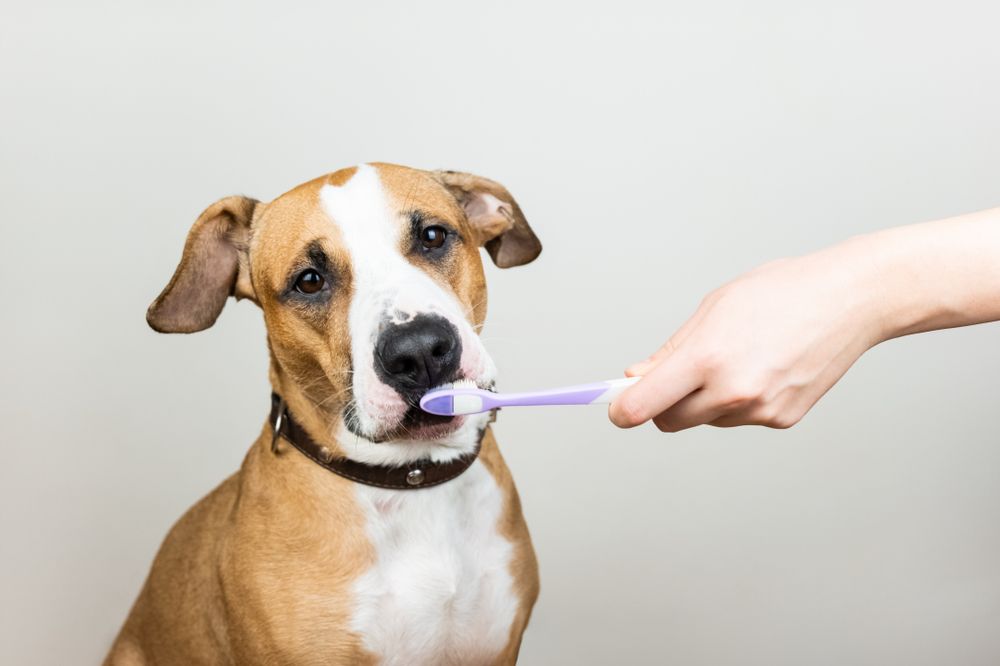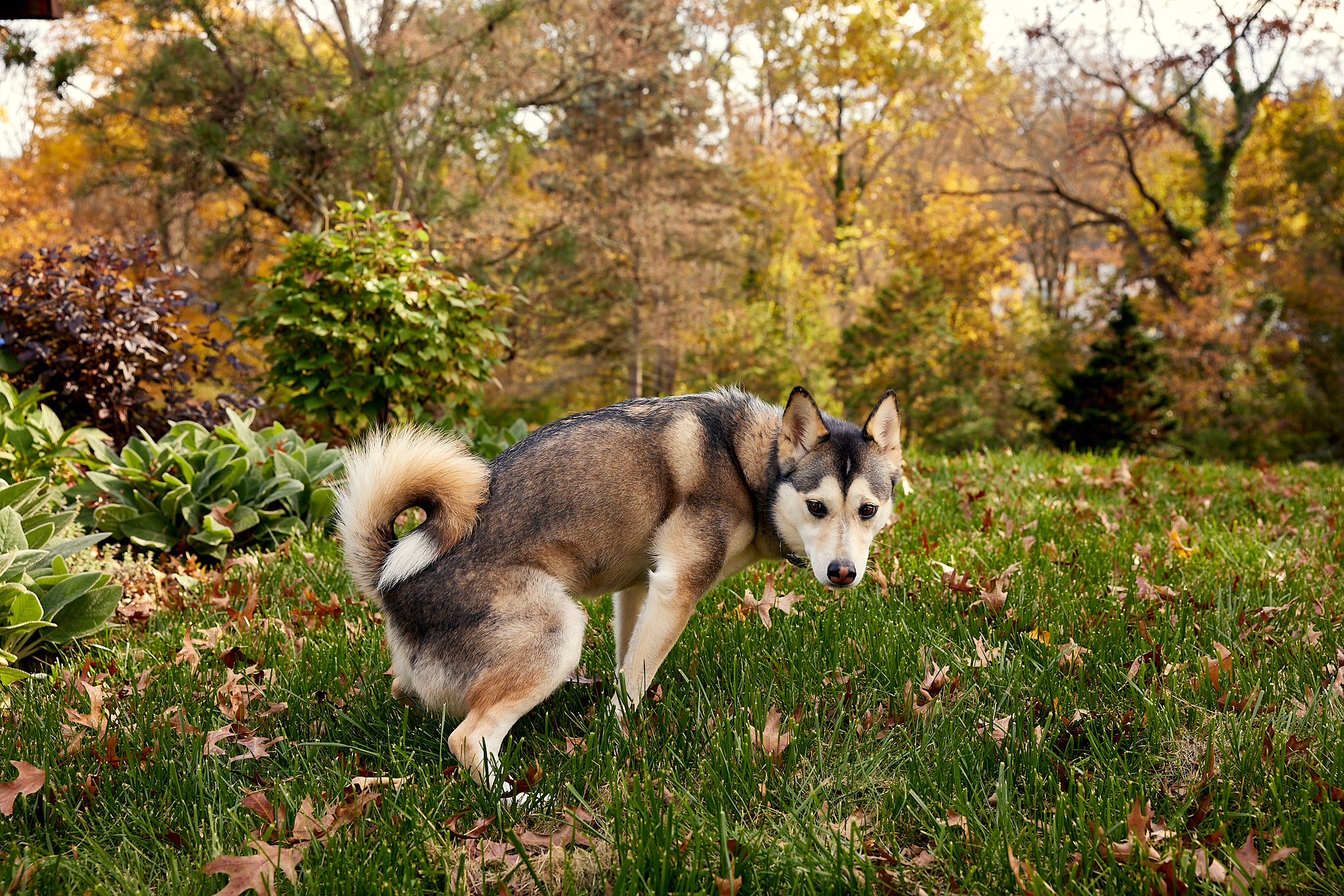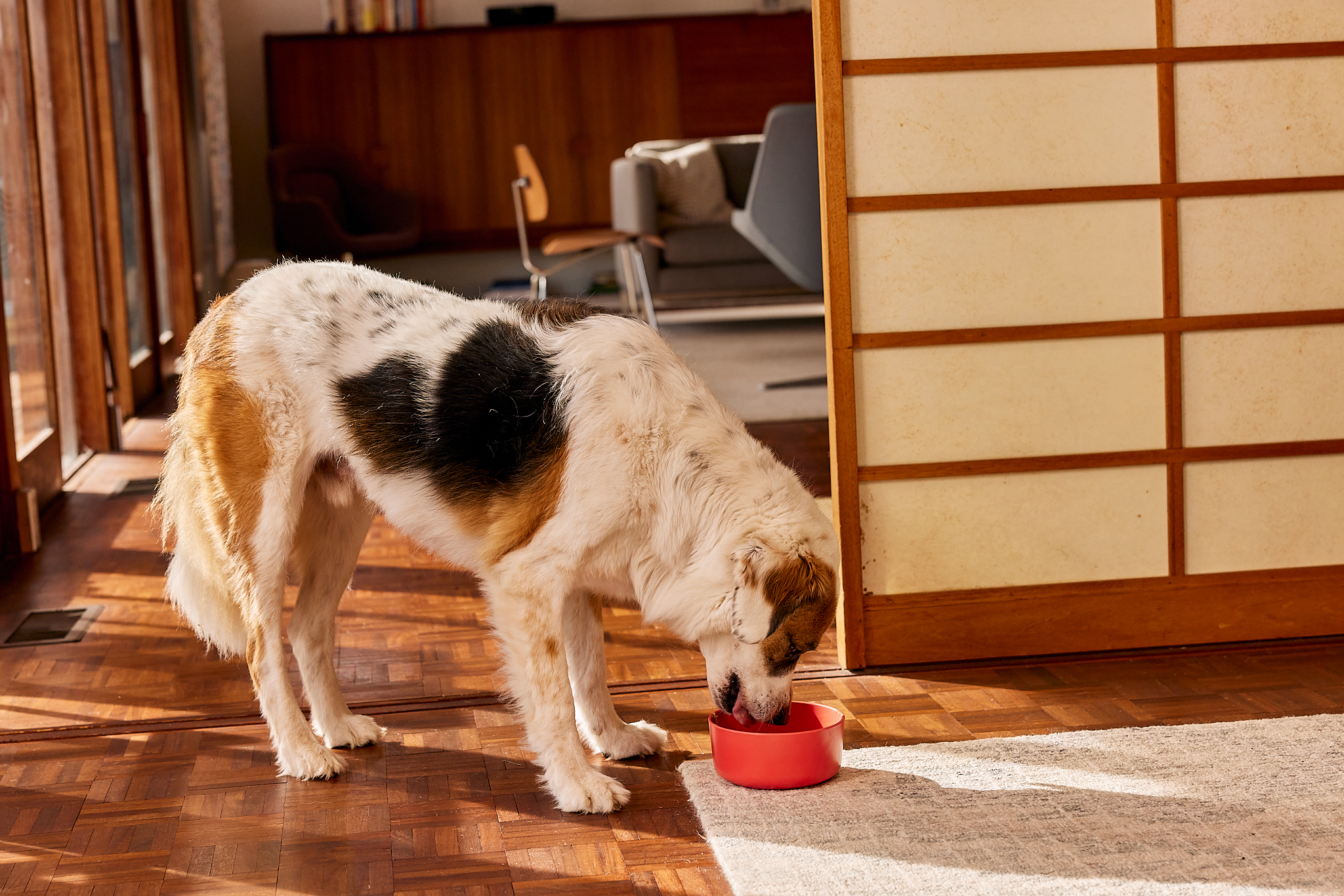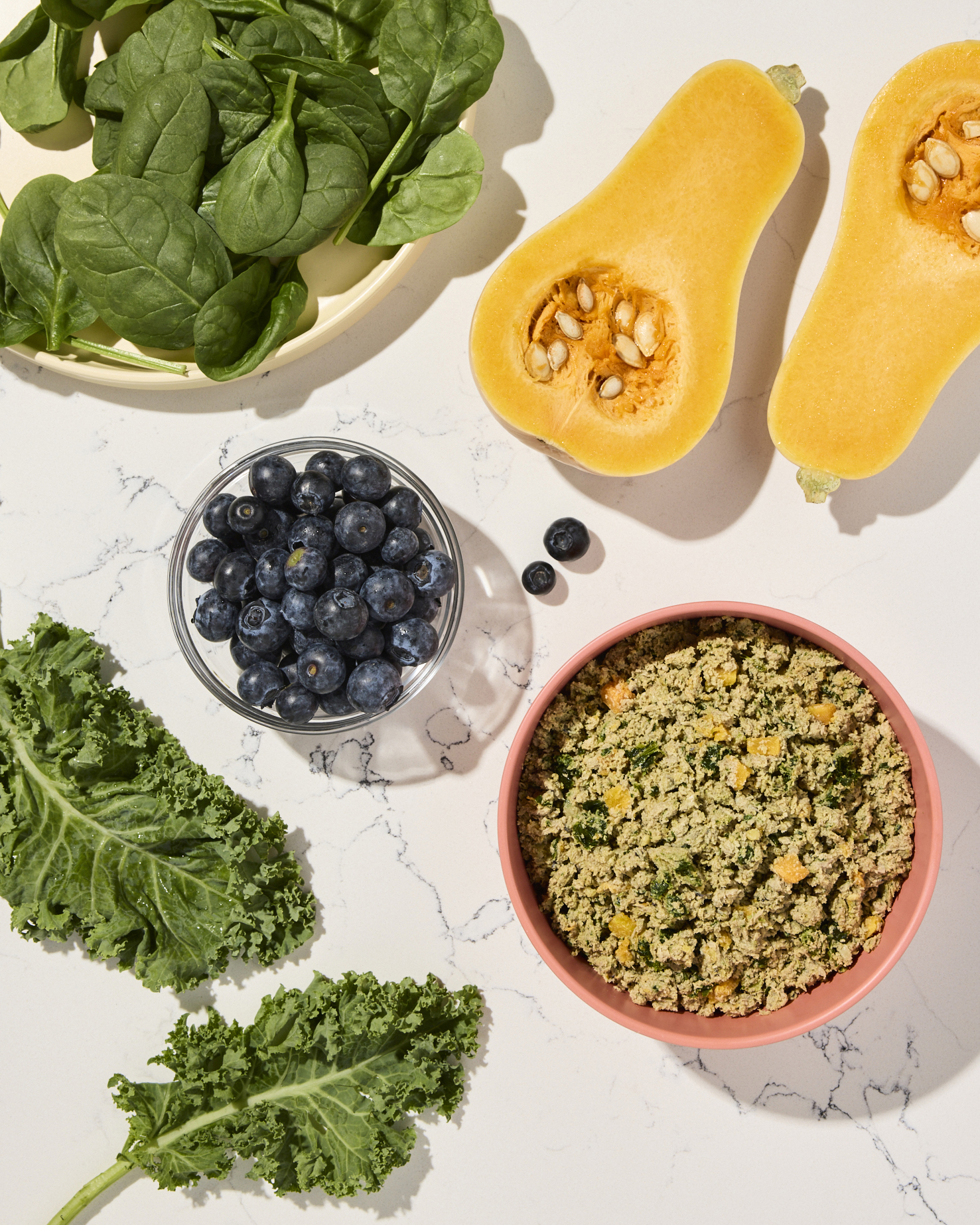Hey Ollie blog readers! We’re offering you an exclusive 60% OFF your starter box! Try now!
Canines are known for their pearly whites—-heck, we even have a tooth named after them! They use them to destroy our favorite pair of socks, inihilate their supper, and even scare away unwanted visitors, but do they require a biannual trip to the doggy dentist? Read on to learn how to keep your dog’s chompers in tip-top shape. Sorry socks.
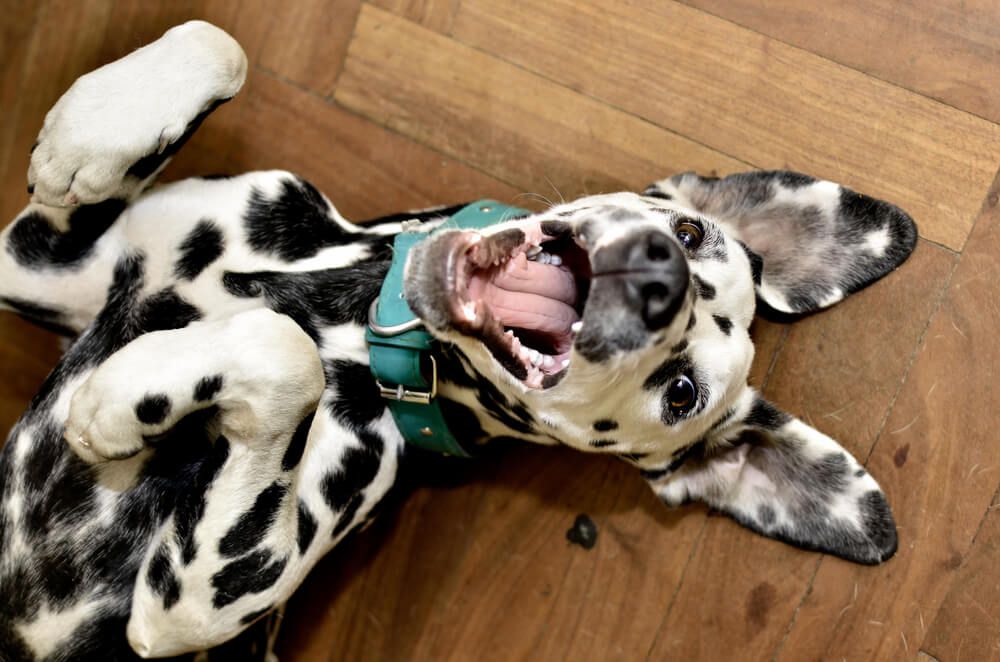
The importance of dog dental health
The American Veterinary Medical Association says “Dental health is a very important part of your pet’s overall health, and dental problems can cause, or be caused by, other health problems. Your pet’s teeth and gums should be checked at least once a year by your veterinarian to check for early signs of a problem and to keep your pet’s mouth healthy.”
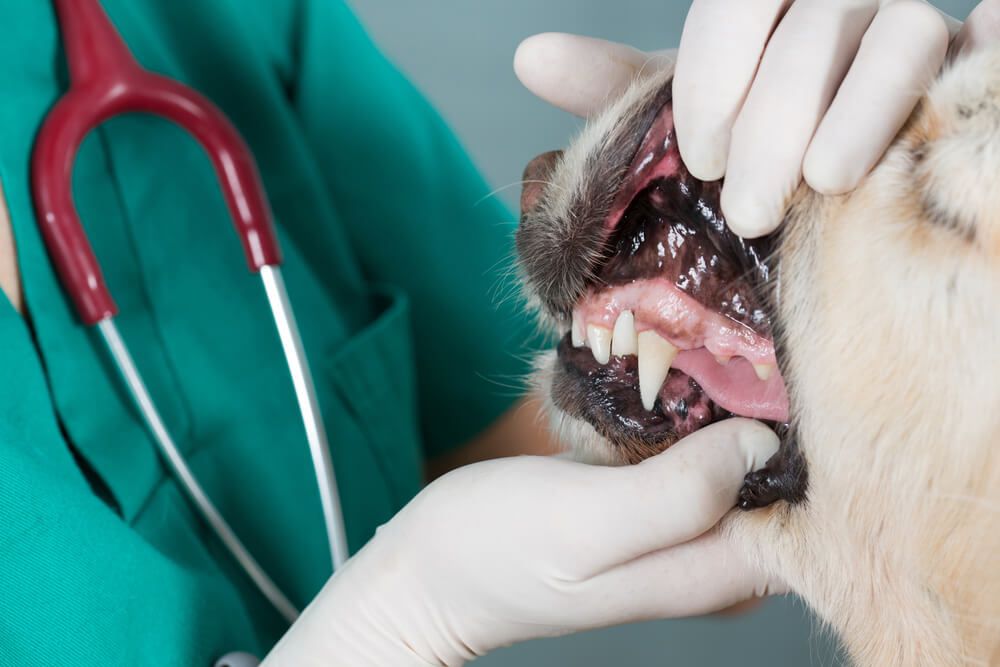
What should I expect from from my dog’s dental exam
Your vet (not a dentist!) will be checking for a number of things including bad breath, plaque and tartar build-up on the teeth and gums as well as broken teeth, cysts, tumors, or infection. The vet will also check the alignment of your pup’s teeth and jaw to ensure they aren’t causing problems with eating, chewing, or dental health. All of these can lead to serious problems if left untreated. While bad breath itself may not be a serious medical issue, it can be a symptom of one!
While some of the things your vet could find in your pet’s mouth like tumors and broken teeth sound scary they aren’t as common as periodontal disease.
The AVMA says that “Periodontal disease is the most common dental condition in dogs and cats – by the time your pet is 3 years old, he or she will very likely have some early evidence of periodontal disease, which will worsen as your pet grows older if effective preventive measures aren’t taken.”
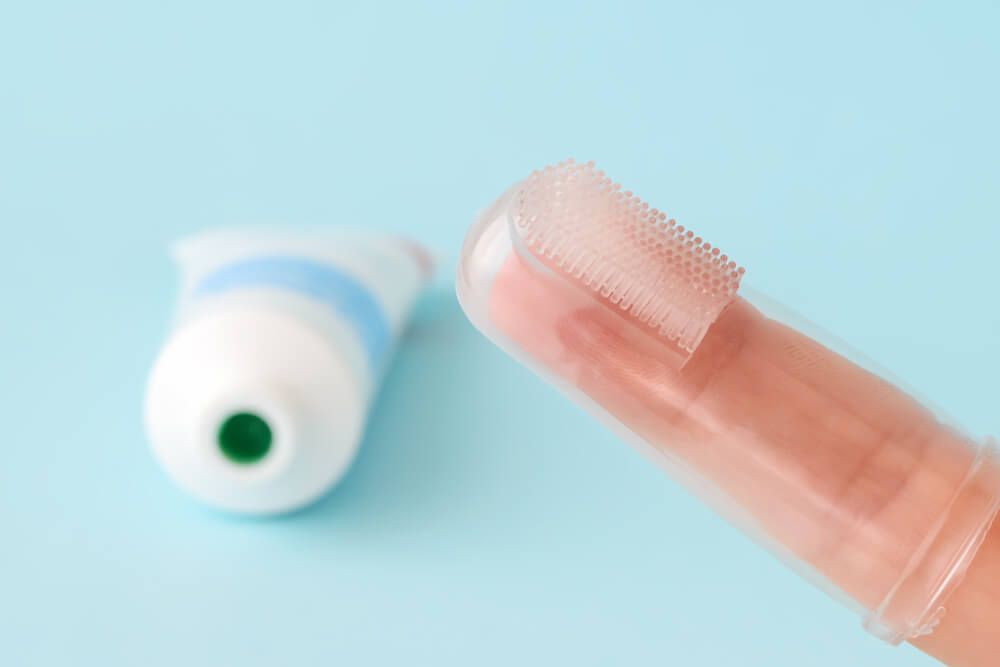
What are the best ways to keep my pup’s teeth and gums healthy?
The best way to keep your pup’s teeth and gums healthy is to keep up with routine brushing at home in addition to annual exams by your vet.
You should brush your dog’s teeth daily with a toothbrush and toothpaste made for dogs. The Veterinary Oral Health Council reviews and approves products recommended for your pet. Discuss the products you are using or want to use with your vet, he or she can make more specific recommendations for your pup’s specific needs.
You want to use an enzymatic toothpaste designed for use on dogs to clean your dog’s teeth. These come in many pet-friendly flavors including meatier beef and poultry or sweet-smelling vanilla mint.
If your dog dislikes having their teeth brushed, talk with your vet about alternatives. There are dental diets, rinses, products you can add to your dog’s water, and even dental chews that can help your dog keep their teeth and gums healthy. Two popular brands of chews are Greenies and WHIMZEES. Greenies come in many flavors including a popular pumpkin spice treat in the fall!
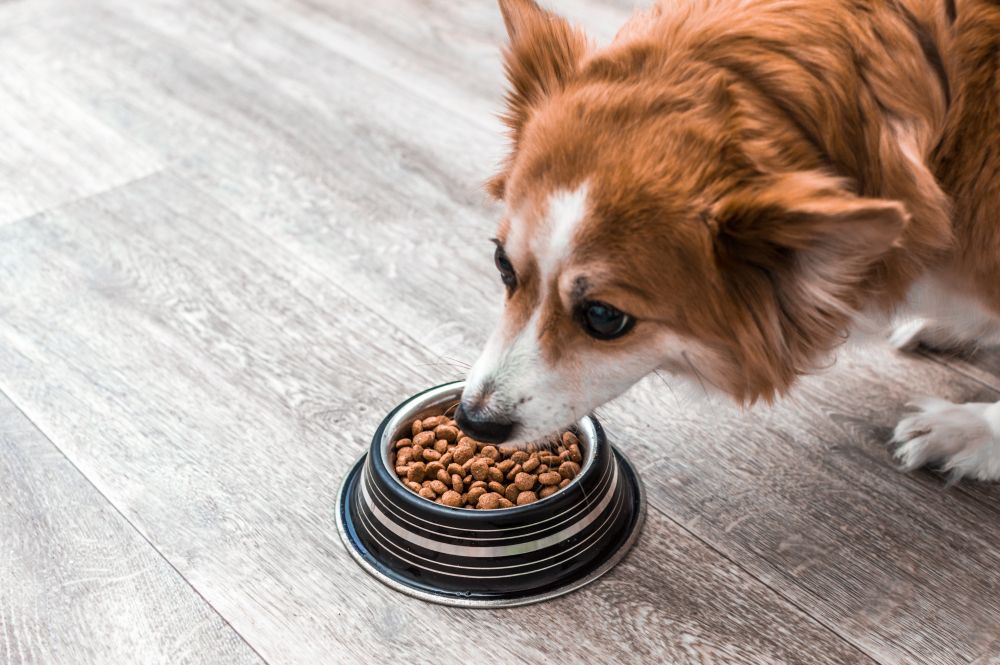
Can kibble help keep my dog’s teeth clean?
You may have heard through a friend of a friend or vet that kibble is advantageous in keeping your dog’s teeth clean. If this is the one thing standing between you and a full fresh food diet, you might be surprised to hear this is a mega myth.
Kibble doesn’t contribute to our dogs’ dental health any more than cereal aids in our own. While there may be something satisfying to you or your dog about the hearty crunch of a kibble, it isn’t a requirement for the dental or overall health of your pup. You’re better off seeking out one of the recommended dental treats designed with your pup’s teeth (and breath!) in mind.
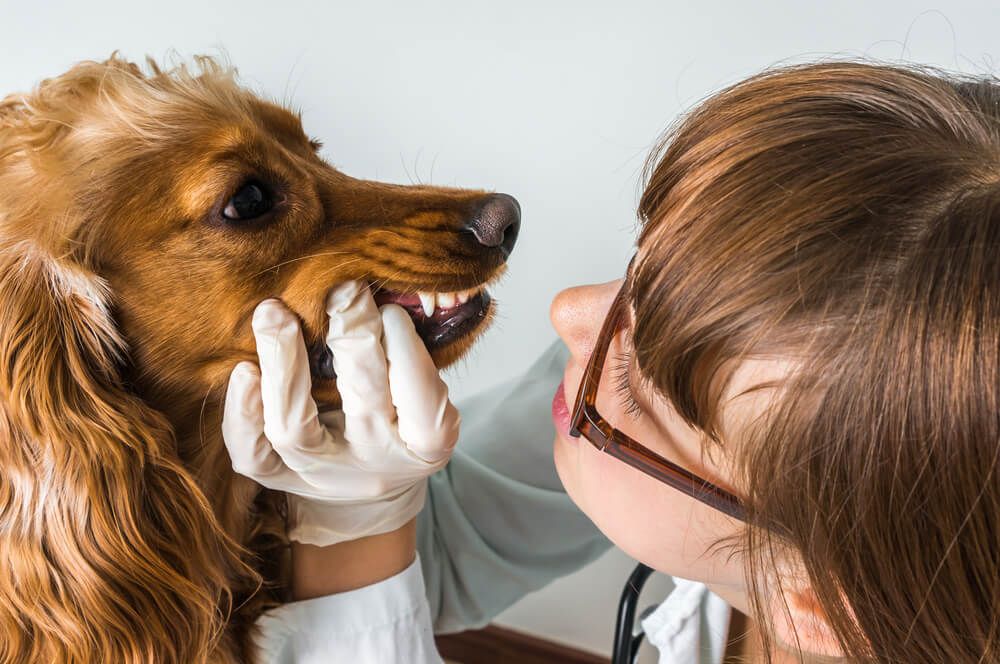
What if my vet says my dog needs a cleaning?
At some point in your pup’s life, chances are your vet will still recommend professional cleaning. The cost of professional cleaning can vary greatly from about $1,500 to $3,000 if your dog needs an extraction or other surgical intervention.
These costs should cover pre-op exams, anesthesia, the cleaning, x-rays so the vet can see what is going on under the gumline and recovery. Root canals, extractions, and procedures may be billed separately.
If your pup is suffering from pain, struggling to eat or chew, or has bleeding gums, you will want to discuss a professional cleaning with your vet.
Like people, some pups are prone to bad teeth and your vet may recommend annual or bi-annual cleanings to prevent small issues from becoming bigger.
Why is pet dentistry performed under anesthesia?
You might be wondering why your dog needs to have their teeth cleaned under anesthesia.
The American Animal Hospital Association provides an excellent explanation for this.
They say: “Your pet must be anesthetized to allow thorough evaluation of his mouth, clean his teeth above and below the gumline, and treat painful dental conditions. According to the 2019 AAHA Dental Care Guidelines for Dogs and Cats, anesthesia-free dentistry is neither safer nor sufficiently comparable to supra- and subgingival cleaning in an anesthetized patient, and is therefore unacceptable. Although owners’ fear of anesthesia is the most common reason pets don’t receive medically necessary dental care, most animals do well under anesthesia and have few complications.”
If you have concerns about your dog and anesthesia due to breed, age, or other medical conditions, discuss it with your vet. They can help you make a plan to keep your pet safe and their teeth and gums healthy.
The Ollie blog is devoted to helping pet parents lead healthier lives with their pups. If you want to learn more about our fresh, human-grade food, check out MyOllie.com.
Tagged As:

The nutrition your dog needs,
the food they want.

Enjoying our articles? Subscribe our Newsletters and get new articles directly to your inbox
You might also like
3 July 2025
5 MINS READ
How Fresh Food Can Help Your Dog Have Perfect Poops
As a pup parent, you’re likely very familiar with your dog’s bathroom habits. While it may not be the most glamorous part of taking care of your pup, a dog’s stool can be one of the most dir…
by Ollie Pets
4 June 2025
5 MINS READ
How Can Fresh Dog Food Help with Weight Management?
Maintaining a healthy weight is one of the most important aspects of your dog’s overall health and longevity. Being overweight or underweight can result in health complications and conditions that…
23 May 2025
5 MINS READ
Why Fresh Dog Food Makes Happier, Healthier Dogs That Live Longer
Every pup parent wants their dog to live a long, happy life, and the path to a healthier, happier dog starts with what’s in their bowl. Recent research and expert insights reveal that fresh dog …
by Ollie Pets
